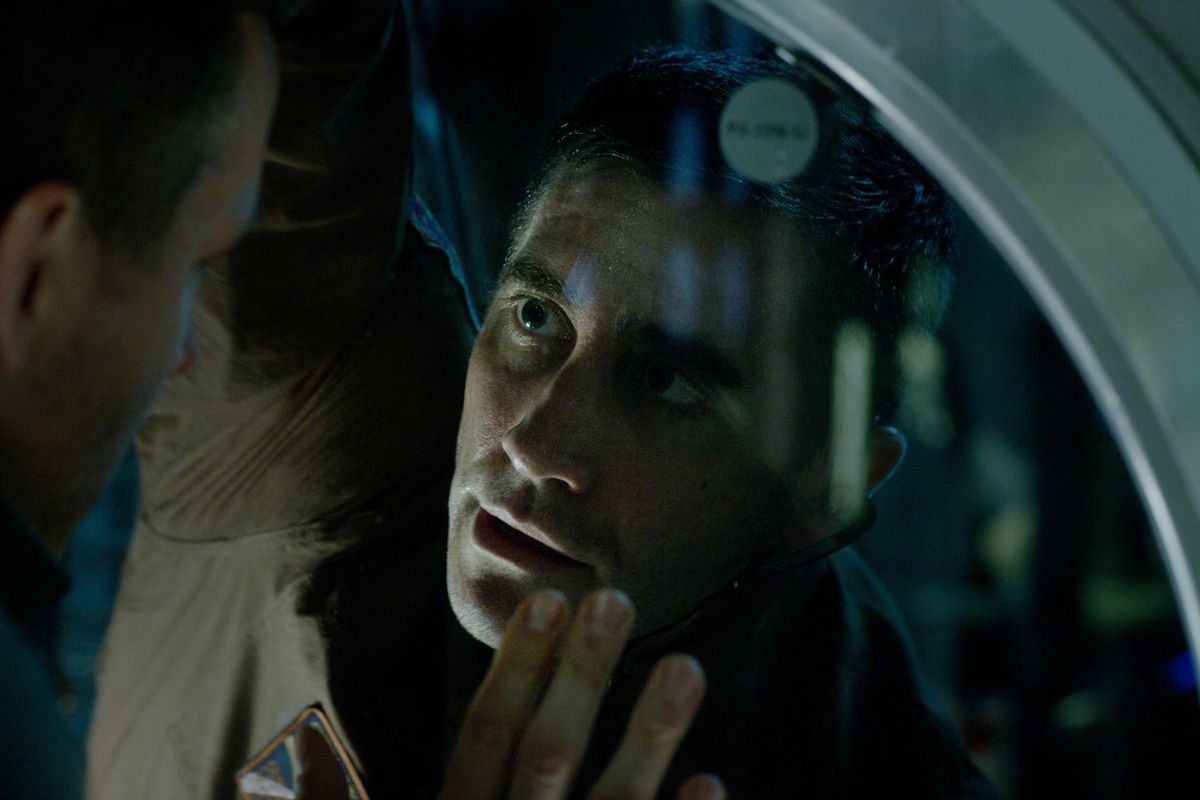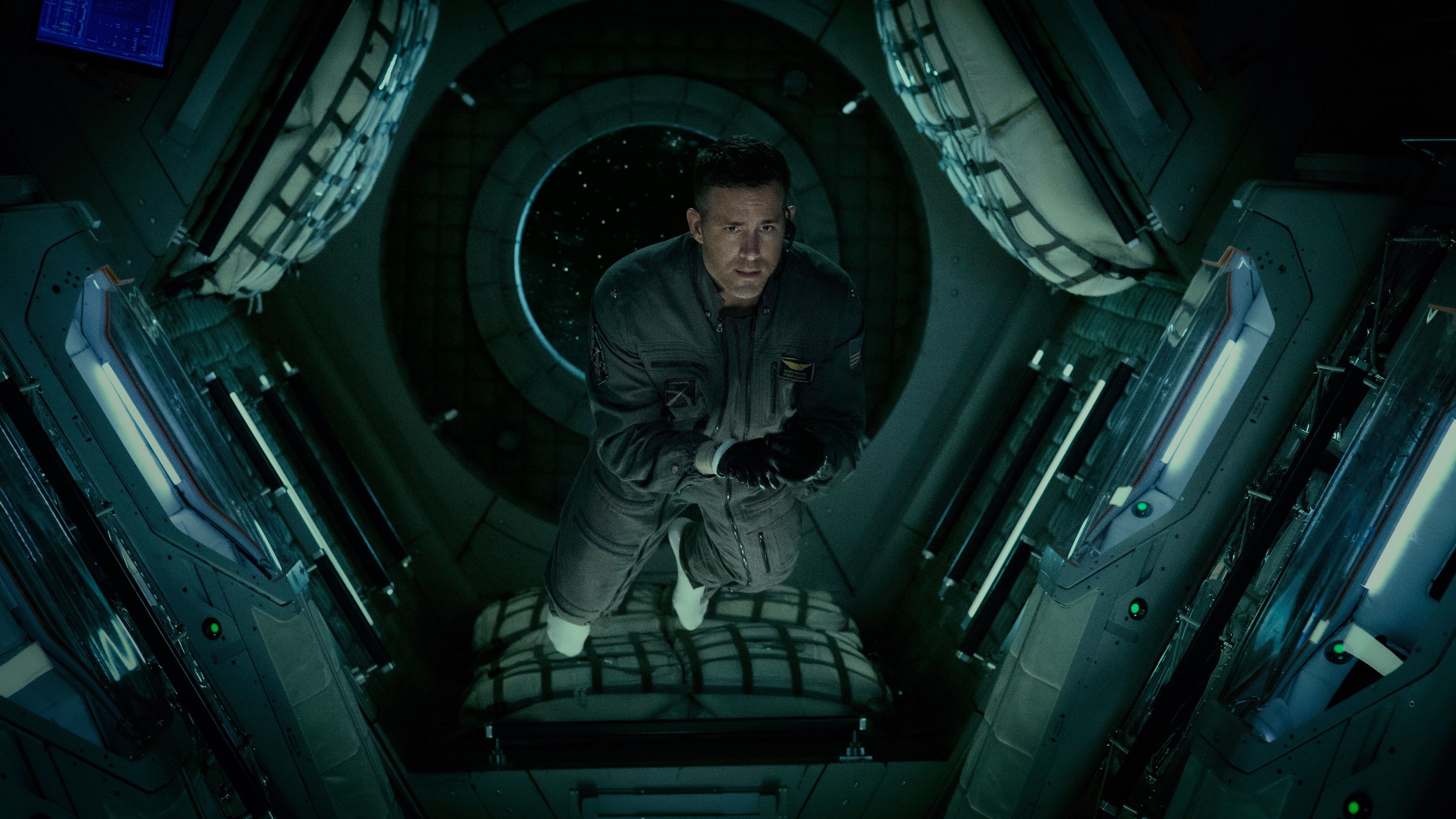Modern film development is dominated by sequels, prequels, spinoffs, adaptations, and basically any established existing property. When everything is based on a name brand or burdened with world-building, seeing an old-fashioned rip-off feels almost quaint. Not every rip-off has to be a deceptive Asylum title, and many rip-offs are classics in their own right. There wouldn’t be a Reservoir Dogs without The Killing, there wouldn’t be Assault on Precinct 13 without Rio Bravo, and there certainly never would never be Cliffhanger, Speed, Air Force One, or The Rock without Die Hard. For a recent, underappreciated example: The 2017 science fiction horror film Life takes the premise of Alien and runs with the story of Ridley Scott’s claustrophobic classic nearly note-for-note. When an unmanned exploratory vessel discovers an extraterrestrial soil sample in a Martian probe, samples of the organism are delivered to the crew of the International Space Station. The life form, nicknamed “Calvin” by Earth-bound school children witnessing the televised reports, is both sentient and lethal.
With the ability to both expand and exterminate, Calvin begins to pick off the crew of scientists Dr. David Jordan (Jake Gyllenhaal), Dr. Miranda North (Rebecca Ferguson), engineer Rory Adams (Ryan Reynolds), system operator (Hiroyuki Sanada), Dr. Hugh Derry (Ariyon Bakare), and Commander Ekaterina Golovkina (Olga Dihovichnaya) one-by-one. However, just because Life is derivative doesn’t mean it's not a blast. Alien is never a bad influence to have, and the outer space body horror of Daniel Espionosa’s underrated fright-fest deserves another look this Halloween season.
While both Life and Alien exist firmly in the space-slasher subgenre, the design of Calvin is completely distinct from the Xenomorph. The Martian creature begins as a single-cell organism, and takes on new forms as it devours its victims. If the Xenomorph is mostly hidden within the shadows of the 1979 classic until the very end, Calvin’s composition is always fluctuating. It's not only a distinguishing factor, but a means for Espinosa to get more creative with the kills.
The perspective of scientists is also unique compared to the motley working-class crew of the Nostromo. These are definitely “movie scientists” who make a lot of dumb mistakes (although they’re significantly less clueless than those in the actual Alien prequels Prometheus and Alien: Covenant), but they seem genuinely interested in the potential Calvin’s biology could have on the future of medical advancements. Their radio messages down to Earth and the subsequent media coverage could have been nothing but a lazy method of doling out exposition, but it provides insight into how their studies are received.
Espinosa isn’t a flashy filmmaker, but as Hollywood “for hire” filmmakers go, he can reliably hit the right beats. Safe House and Easy Money are generic action movies unshackled from any larger ambitions, and Life keeps the story mostly focused on the question of which crew member will be taken out next. Espinosa gets away with a surprising amount of gore for a PG-13; Reynolds’s surprisingly early exit, in particular, boasts some fun body distortion.
The relatively thin characterization is elevated by a surprisingly stacked ensemble, and it's nice to see a studio project with such a diverse cast working together effectively. Gyllenhaal has mostly worked with experimental arthouse fare after the failure of Prince of Persia: The Sands of Time, so it's fun to see him return to material that is campier. Jordan’s willingness to sacrifice himself in order to destroy Calvin is the exact type of simple, noble character decision that a great actor can make more emotionally effective, even when it reads fairly simplistic on paper.
However, the fact that Jordan’s intended self-sacrifice doesn’t go as planned makes Life even more interesting. Now unleashed on Earth when Jordan’s pod is recovered when Vietnamese fishermen discover the crashed vessel, Calvin can continue spreading and presumably set up an Aliens rip-off next. It's strange that online speculation ahead of Life’s release centered on its connection to Venom, because screenwriters Rhett Reese and Paul Wernicks’ ideas for a sequel centered on containing Calvin could potentially spawn a cool franchise of its own.
It's more than a little ironic that Life hit theaters only two months before Alien: Covenant, because the two films take nearly opposite “back to basics” approaches to the original Alien premise. Covenant is completely weighed down by its mythology; Scott became so obsessed with tying in events from his original film, retconning events from Prometheus, and examining the consequences of playing God that the kills felt secondary. Comparatively, the stripped-down nature of Life makes it much more suspenseful.
Life is a March movie that knows it's a March movie, but the refreshingly straightforward take on zero-gravity horror is worth revisiting amidst this year’s Halloween festivities. The demand for “original sci-fi” doesn’t always need to include projects as ambitious as Arrival or Interstellar. Being non-IP in of itself is a novelty, but the well-executed chaos and anxiety in Life’s galactic thrills are worth another look.




